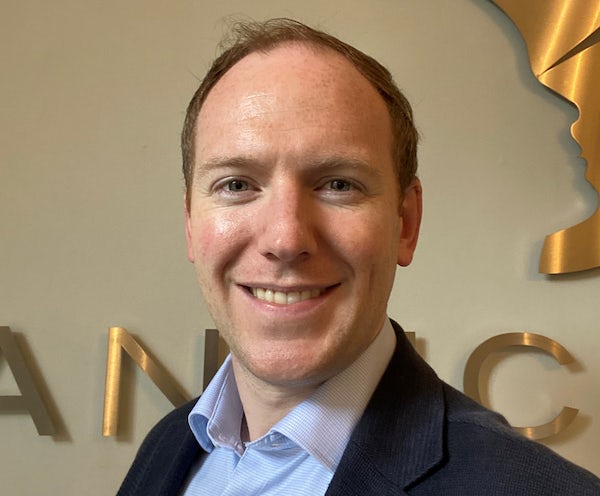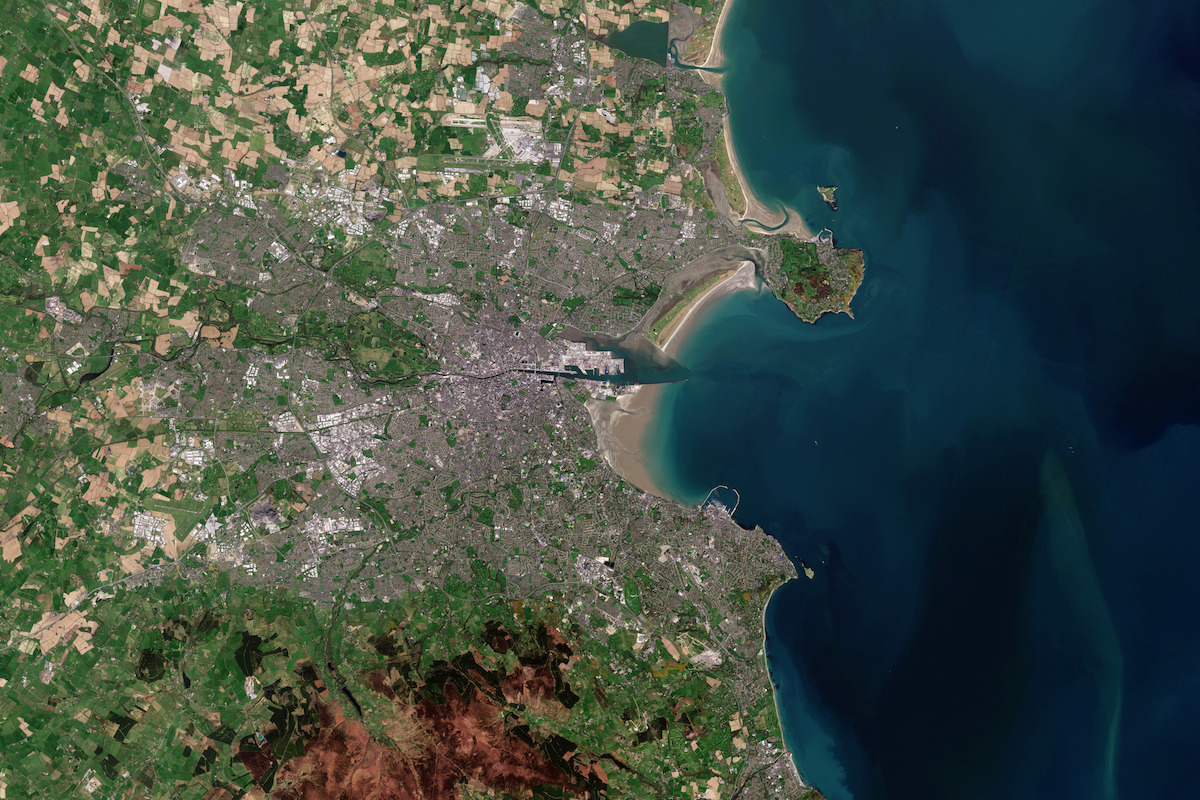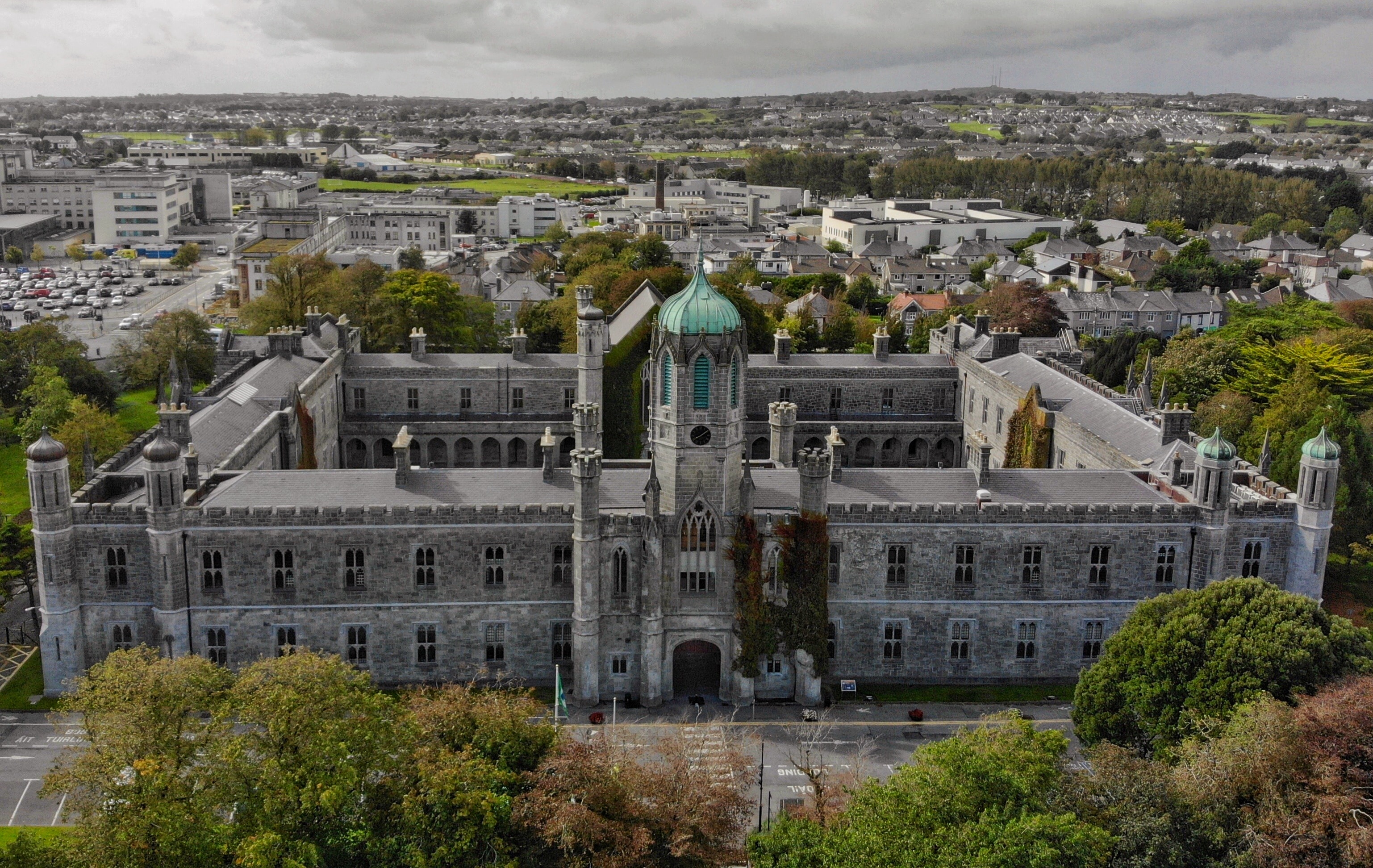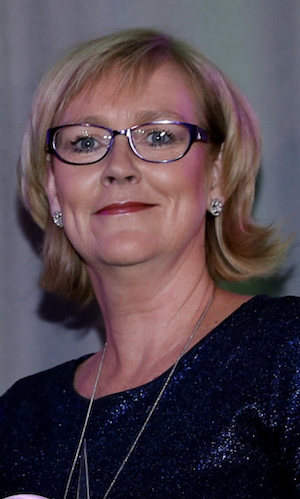From a university-owned farm and a state agency that funds TTOs and invests in spinouts to a national IP protocol, Ireland has a lot to teach others.

Ireland has so far created seven unicorn companies with valuations of more than $1bn, including names like Flipdish, LetsGetChecked, Wayflyer, Intercom, Fenergo, TransferMate and WorkHuman.
Wayflyer was one of the most recent to join the unicorn herd last year, and it did so just three years after being founded. The e-commerce financing and analytics platform, which has so far raised more than $236m, is the first unicorn to have spun out of an Irish university — University College Dublin — and it is the sign that the unique system that Ireland has developed for fostering university innovation is starting to bear fruit.
Seven unicorns from a country of just 5m people is a good hit rate. Of those countries in Europe with a similar population size, Finland also has 7 and Norway has 10, according to Dealroom. Slovakia doesn’t have any yet.
Ireland isn’t just punching above its weight in unicorns. It also manages to create a lot of startups from a very modest public spending budget — the country has a research budget of about €1bn, not much more than the research income of just a single university like Oxford in neighbouring Great Britain.
“New enterprises formed per €100m research income is around 5.5 in Ireland, whereas it is 2.2 in the UK and 1.7 in the US,” explains Barry Fennell, a senior commercialisation specialist at Enterprise Ireland, the government organisation responsible for the development and growth of Irish enterprises in international markets.
How does it make a little go such a long way?
One factor is strong collaboration between universities. Ireland is too small for each university to build its own tech cluster in a silo so they have tended to develop complementary strengths and work together, in line with the Gaelic Irish saying: ‘ní neart go cur le chéile’ — there is no strength without unity.
Venture capital firm Atlantic Bridge has emerged as a key pillar, engaging with university tech transfer offices at a very early stage and helping connect startups with international investors. Also helping are a unique national IP protocol and government funding scheme that shepherds startups through their critical pre-seed stages.
Read more about Ireland’s ecosystem in our three spinout case studies:
How Equal1 is building a desktop quantum computer
AudioSourceRe pitches sound separation using AI
No more uncomfortable trips to the bathroom: how ProVerum tackles BPH
Atlantic Bridge: engaging two years before a spinout is formed
Atlantic Bridge, an investment firm with offices on both sides of the pond that specialises in bringing Irish startups to the US, joined forces with Trinity College Dublin and University College Dublin in 2016 to create a €60m University Bridge Fund that would invest in spinouts from all Irish universities and research institutes. The university venture fund was a first for the country. University College Cork and University of Galway joined the list of limited partners for the €80m University Bridge Fund II in 2021.
The University Bridge Funds’ portfolio has secured more than €450m in equity and grant funding so far, leveraging over six times the investment received from Atlantic Bridge.
The nationwide approach has given Atlantic Bridge the pipeline to make more than 40 investments to date split between healthcare, software and deep tech.

Notably, University Bridge Fund’s work starts even before a company exists — a unique model in the country.
“We spend a lot of time on the ground with university tech transfer teams, Enterprise Ireland commercialisation specialists and meeting researchers and academics, often 18 to 24 months before they actually spin out,” investment director Conor O’Sullivan says.
“We’re a deep tech investment firm, so a lot of the things that we see, we’ll have the expertise for in terms of the people within the team and advisors. And we try and help them from a technical point of view, but also build out teams very early on.”
Fiona Neary, innovation operations manager at University of Galway, says: “This has been a huge, very important step for our venture scientists because it gives them first-hand insights into the needs of the investor.”
Once a spinout is ready for investment, Atlantic Bridge has a large network of co-investors it can bring in — it has invested alongside more than 50 other funds to date, many of them based overseas, like US-based healthcare provider Mayo Clinic’s corporate venture capital unit Mayo Clinic Ventures or Imec.xpand, the Belgium-based venture fund affiliated with research institute Imec.
Corporate venture capital interest tends to come at later stage, O’Sullivan explains, though Mayo Clinic Ventures did invest in University of Galway spinout Tympany’s seed round. “We have a very large number of corporates that we develop relationships with through helping companies scale and develop sales and partnership opportunities. We try and bring them onto corporates’ radars as early as we possibly can,” O’Sullivan says.
International outlook
The most prolific investors in Irish startups are Irish investors — out of the top 20 by number of investments since 2016, only five are from overseas, according to Pitchbook, with New Jersey-based SOSV’s 61 deals making it the most active among its international peers (and fourth in Ireland). But Irish founders (such as the Collison brothers who founded Stripe) are not averse to moving to places like Silicon Valley. And where they invest, overseas VCs can put Irish startups into overdrive — in fact, moving into the US market early on is precisely how Wayflyer secured its unicorn status.
The international perspective comes naturally to the Irish, says Tom Flanagan, director of enterprise and commercialisation at University College Dublin’s innovation arm NovaUCD. “There’s an interesting diaspora as well. A lot of Irish people, myself included, would have gone abroad at some point and worked abroad. And then you bring that experience back.”
Internationalism is an important feature of the ecosystem.
“That is a message that we’re giving to all our companies and a number of our companies are looking at investors in the US and looking at launching offices in the US,” says Flanagan.
This international perspective also helps when it comes to pursuing an exit. Trinity College Dublin has achieved four of these in the past four years. Among them, inflammatory disease company Inflazome was bought by pharmaceutical firm Roche for €380m in 2020, and online mental health platform SilverCloud was purchased by telehealth company Amwell for €270m in 2021.
Enterprise Ireland: developing 90 startups a year
Enterprise Ireland, the government organisation responsible for the development and growth of Irish companies, has a uniquely broad remit. Not only does it fund tech transfer offices themselves, but it also provides commercialisation grants to help academics establish spinouts and finally it makes equity investments in these companies.
The agency has an annual target of developing 90 high-potential startups — defined by Enterprise Ireland as a company that creates 10 jobs and €1m in sales within 3 years of starting up — with 15 of these being university spinouts. To do this, it employs 15 commercialisation specialists, like Barry Fennell, who identify and work with academics who have commercially relevant ideas — particularly in IT and life sciences, although there is also a third category for broadly “everything else”.
Enterprise Ireland provides spinouts with commercialisation grants of between €400,000 and €600,000 over a two to three-year period. This money must not be used as a research grant, Fennell stresses, an aspect that has occasionally proven confusing to academics.

Because there is a valley of death — typically lasting around eight to 12 months — between the commercialisation grant ending and a first equity round, Enterprise Ireland also runs a Pre-Seed Start Fund, which provides €100,000 for teams to reach milestones that allow them to move on to a seed round.
The challenge for the spinout during that time isn’t just reaching milestones, it is also finding investors for a seed round — Enterprise Ireland will invest in that seed round, but it follows the lead investor’s terms and conditions and doesn’t take more than 10% equity. “We’re not necessarily in it for financial return,” Fennell states.
This requirement for a lead investor both gives the state protection and helps ensure that a startup is investable from a private market point of view and not simply surviving on public money.
Fennell would like to see more investors like the University Bridge Fund, writing cheques at the pre-seed and seed stages. “It’d be unfair to say that that wasn’t a challenge,” he admits. “We have great relationships locally with Atlantic Bridge and all the major VCs and seed investors. But it is always a challenge, getting an investor to write that first cheque. Once they do that, everybody else tends to pile in.”
Beyond commercialising spinouts Enterprise Ireland funds tech transfer offices, pumping more than €86m into the system since 2007. Applications for the latest round of funding, worth €33m over the next four years, are currently under review.
The tech transfer offices themselves are coordinating and recently launched the Irish Knowledge Transfer Association (IKTA), an effort led by Trinity College Dublin. It is an all-Ireland initiative, also bringing in Queen’s University Belfast and University of Ulster.
Fact sheet
| People to know |
Conor O’Sullivan, investment director, Atlantic Bridge  Tom Flanagan, director of enterprise and commercialisation, University College Dublin  Fiona Neary, innovation operations manager, University of Galway  Neil Gordon, startup development manager, Trinity College Dublin  Barry Fennell, senior commercialisation specialist, Enterprise Ireland  |
| Public funding sources |
| Enterprise Ireland European Space Agency Horizon Europe European Innovation Council Western Development Commission |
| Information about universities |
| University College Dublin‘s innovation arm NovaUCD is celebrating its 20th anniversary this year. It operates the only university-owned farm in the country and has created one of Ireland’s six unicorns, Wayflyer. Trinity College Dublin manages commercialisation activities through Trinity Innovation. It has created 30 spinouts in the last six years, which have raised more than €260m and created more than 500 jobs. University of Galway has historic strengths in medtech, a sector that continues to be of significant importance even as the institution diversifies into sectors like marine, energy and construction. Its Innovation Office has supported 128 spinouts and startups to date. |
European Union resources

Enterprise Ireland also coordinates funding from EU programmes such as the €95.5bn scientific research initiative Horizon Europe.
“Ireland does considerably well under the European Innovation Council (EIC) in comparison to all member states,” Fennell celebrates. That’s somewhat of an understatement: Ireland ranked second in the latest EIC Accelerator allocation of funding in March 2023.
Keeping tabs on what is being funded by Horizon Europe and its innovation programme EIC is also a good way for researchers to understand what is coming down the pipeline, Fennell says, and “that is one of the things you need to be mindful of when you’re setting up a company”.
One surprising source of EU funding is the European Space Agency (ESA). For example, Proveye, an AI-powered digital image analysis platform spun out of University College Dublin, received €225,000 in September 2022.
The EU also plays a part through the European Investment Fund (EIF), a limited partner in both University Bridge Funds. “EIF is a very important funder and partner,” O’Sullivan says. “The EIF’s tech transfer programme is incredibly important to get these funds up and running.”
The EIF has historically done this through its InnovFin Equity Facility for Early Stage — which, by September 2021, had committed more than €1.5bn and has a maximum investment per fund of €50m and 25% of the fund total. Funds that have benefitted from EIF cash include the €60m KHAN Technology Transfer Fund I, aligned with Germany’s Max Planck Society, the €50m i&I Biotech Fund I focused on central Europe and Eir Ventures, a €122m fund backed by six Swedish universities and University of Copenhagen.
Trinity Innovation: pioneering startup development

Trinity College Dublin was the first Irish university to create a position of startup development manager, hiring Neil Gordon for the role back in 2017. Similar positions have since been created at most universities throughout the country as startups have become increasingly important outcomes for research.

TCD has generated 30 spinouts in the last six years, which have raised more than €260m and created more than 500 jobs, Gordon says. It’s done it with a research expenditure of just €105m per year.
A key objective for TCD, and many of its peers in Ireland, is also the support of spin-ins — startups that are founded outside the university and then partner with an institution to develop their intellectual property. This can only work if a principal investigator on campus wants to engage, Gordon stresses. “The benefits of spin-in projects is you have people that understand the market already, they understand the competitive advantage of what they’re developing, they’re typically a bit more commercial.”
Trinity College Dublin has a good relationship with local angels and VCs but it would like to also start working with family offices, according to Gordon. With family offices, it’s often not necessarily about money but access to strategic connections. “We want to create that serendipity where something might happen at the right time, at the right place, in the right way,” Gordon says. “It can result in a collaboration. It can result in a sale. It could result in a partnership. It could result in an investment.”
Gordon is also keen to engage more with researchers from arts, humanities and social sciences. Already, a spinout is currently in its early stages that provides equity and diversity training through games — based on research at the School of Psychology — but, Gordon says, “there’s an opportunity to try and drive that research up the Technology Readiness Levels to spinout. That’s effectively a tier where I think there might be opportunities for the university to do more.”
“Trinity’s next major investment in innovation will be an incubation place called Portal,” Gordon says. “This is a €38m investment and it’s being developed on Trinity’s campus. It’s going to be about 5,500 square meters. It’s in a location called the Silicon Docks and there we have Facebook, Google and LinkedIn right beside us.
“The objective is to be able to house 80 companies, including spinouts. We want to create lots of vibrant event programming. We want to bring the place to life. We want it to be a portal between what the university does in terms of innovation capacity and industry needs, as well as a shop front for our innovative output.”
University College Dublin: agtech pioneer

Across town, University College Dublin is Ireland’s largest university and AgTechUCD, a unit within commercialisation office NovaUCD, in particular, is an interesting concept. “We’re the only university in Ireland that has a farm,” Tom Flanagan says. “It’s a working farm, but it’s also a research farm and it’s a teaching farm, so all of the vets would go there.”
This is a rarity outside of Ireland, too, and Flanagan points to Wageningen University in the Netherlands as the institution in Europe that pioneered the concept of running a farm.
The farm has historically focused on research and teaching around crops and animals, but it was, until a couple of years ago, missing the innovation part, Flanagan says: “While we were collaborating on research with some of the larger companies, startup companies weren’t making it in there.”
So in 2021, Flanagan set up AgtechUCD and the 12-week Agccelerator programme, which enables pre-seed companies to develop their products and services across agtech, foodtech and veterinary tech on-site. Participants need a minimum viable product, but teams can join the accelerator pre-incorporation. “The farm is quite a harsh environment, really, for new products, so it’s worthwhile to have them develop on the farm,” Flanagan notes.
University of Galway: medtech hub in the west of Ireland

University of Galway has founded 13 spinouts in the past three years, all of which have secured investments, and two-thirds of them have achieved high-potential startup status, according to Fiona Neary.
It has also gained 27 patents, licensed 42 technologies and launched 110 projects with industry in that same period, all on a budget that is a fraction of what an institution like University of Cambridge has at its disposal. Some of this is down to creative partnerships, especially in the medtech field.
Among Galway’s initiatives is a programme, AIMday, pioneered by Uppsala University in Sweden that engages academia and industry to solve problems. Galway has also adopted Stanford University’s Biodesign Innovation Fellowship to create its own BioInnovate programme. It puts together multidisciplinary teams (fellows are typically from a commercial background or the health system, with academics getting involved as mentors) and immerses them in real-life healthcare settings to develop products for which there is a clear need. Some of these go on to become spinouts, like AuriGen Medical which has developed a cardiac implant to treat both the stroke and arrhythmia risk associated with longstanding persistent atrial fibrillation.

It has worked so well (22 spinouts have been founded to date) that University College Dublin’s NovaUCD is among those now creating its own version of BioInnovate, moving it beyond healthcare. Flanagan says: “Various universities, including ourselves, have proposals into Enterprise Ireland for what they’re calling the Innovators Initiative. That’ll be for different sectors to attract people, who want to be a CEO, and have them spend a year to look at unmet needs and quantify them.”
University of Galway is also launching a Galway Institute for Clinical Trials.
It’s building on the university’s historic strengths in life sciences. In 2018, Neary raised €1.6m to deliver the country’s first medtech accelerator, BioExel. The accelerator was wound down when covid struck, as it couldn’t be offered online due to the practical nature of medical devices. But the pilot project was a success: participants went on to raise about €35m, Neary notes, and they now employ some 65 people.
And BioExel wasn’t in vain for the Innovation Office either: the learnings led to “a comprehensive set of impact training programmes that we now run each year”, Neary says, and these programmes have become a transnational programme, called Innov-8-2-Create, thanks to EU funding. Innov-8-2-Create is now being delivered by Galway with the help of a few European universities and tech transfer association ASTP.
But it’s not just life sciences where Galway is forging ahead: the university has also invested €5m to support marine and energy challenges and it is home to one of Ireland’s newest research centres focused on construction technology, Construct Innovate.
“We want to make sure in the west that we don’t get too over-reliant on medtech,” Neary states. “We need to make sure that we replicate our core competencies in all areas. So, there’s a strong need for us to focus on emerging technologies and underserved areas, such as women’s health, paediatrics, energy or agtech.”
Ireland as an IP trailblazer
Another feature that has helped Ireland create an outsized number of spinouts is the national intellectual property (IP) protocol, a set of guidelines, templates, databases and advice on how to carry out collaborative research, licensing and spinout formation. It is freely available through research commercialisation and industry-academia partnership agency Knowledge Transfer Ireland (KTI).
It is highly unusual for a country to have this. Similar initiatives have popped up in other places — in the US, universities like Columbia and Stanford joined forces with investors like Venrock and 5AM Partners in 2020 to create a term sheet template for life sciences spinouts. Columbia and Stanford then helped create something similar with universities like Oxford, Cambridge and Edinburgh in the UK, called University Spinout Investment Terms (USIT) Guide. While noteworthy and important initiatives, they nevertheless both relied entirely on universities and VCs doing the work by themselves and hoping that it would be useful enough for others to adopt. Governments did not get involved.
The Irish government did — not just for life sciences, but across industries.
The national IP protocol has evolved over time — its most recent iteration is from 2019. UCD’s Tom Flanagan, who led a six-month review of the protocol in 2014 and 2015, described the process as an interesting challenge because “you want the guidelines to be somewhat fair, but actually you want them a little bit slanted towards moving research to industry”.
Flanagan elaborates: “There are differences between the typical kind of licence that would happen between companies versus a licence from a university. We’re a lot more risk-averse. We don’t provide a lot of warranties. Whereas if you were doing a company-to-company transfer, you would be looking for all sorts of warranties and shared liability and so on,” he says.
Next steps: finding the commercial expertise
Success stories like Wayflyer are helping the Irish tech ecosystem reach the next step.
“Creating an ecosystem of successful spinouts is really important to us,” says Atlantic Bridge’s Conor O’Sullivan. “We will see more success stories, and from our portfolio, a number of companies are trending in that direction where you’re strengthening an ecosystem of successful founders who were academics, ran companies, scaled them up and then sold them or took them public.”
“The ecosystem certainly has evolved,” Enterprise Ireland’s Barry Fennell observes. “You go back 10 years, we were funding proof of concepts. There certainly wasn’t the same spotlight and ambition as there is today.”
A challenge that remains is finding people with the right commercial expertise to join at an early stage, according to O’Sullivan. He says: “The technology is de-risked to a certain extent because they’ve gone through Enterprise Ireland’s Commercialisation Fund, they’ve been doing science and research within the university, they might have other types of funding but you’re still taking a leap of faith to go that early into a company. So those team combinations will always be a challenge and are incredibly important to future success.”
Fennell, too, picks up on the importance of finding the right leaders: “We’re investing in the best people. And really, it’s all about the people when we’re talking about technologies from the universities, particularly in the early stage. As you move through the rounds, the technology becomes more relevant but it is around developing a culture.”
He adds: “It makes it all worthwhile when you can fund an idea that a young postdoc or researcher has, who may be working with a senior academic, and you see three, four years down the line, the company is able to raise round one, round two, employ people, jobs being developed out of Ireland.”
TCD’s Neil Gordon adds: “I believe that there’s a much larger cohort of researchers that we could help develop an interesting commercialisation of the research. The onus is on us in Trinity Innovation to take away the fear factor of starting a company, to show them that there is a way and there’s a well-trodden path.
“We want to engage the community with case studies, impact stories, and even making more explicit the financial and reputational benefits of being involved in a spinout. Atlantic Bridge and our network of TCD partners can certainly enhance that effort.”
Read more about Ireland’s ecosystem in our three spinout case studies:
How Equal1 is building a desktop quantum computer
AudioSourceRe pitches sound separation using AI
No more uncomfortable trips to the bathroom: how ProVerum tackles BPH









